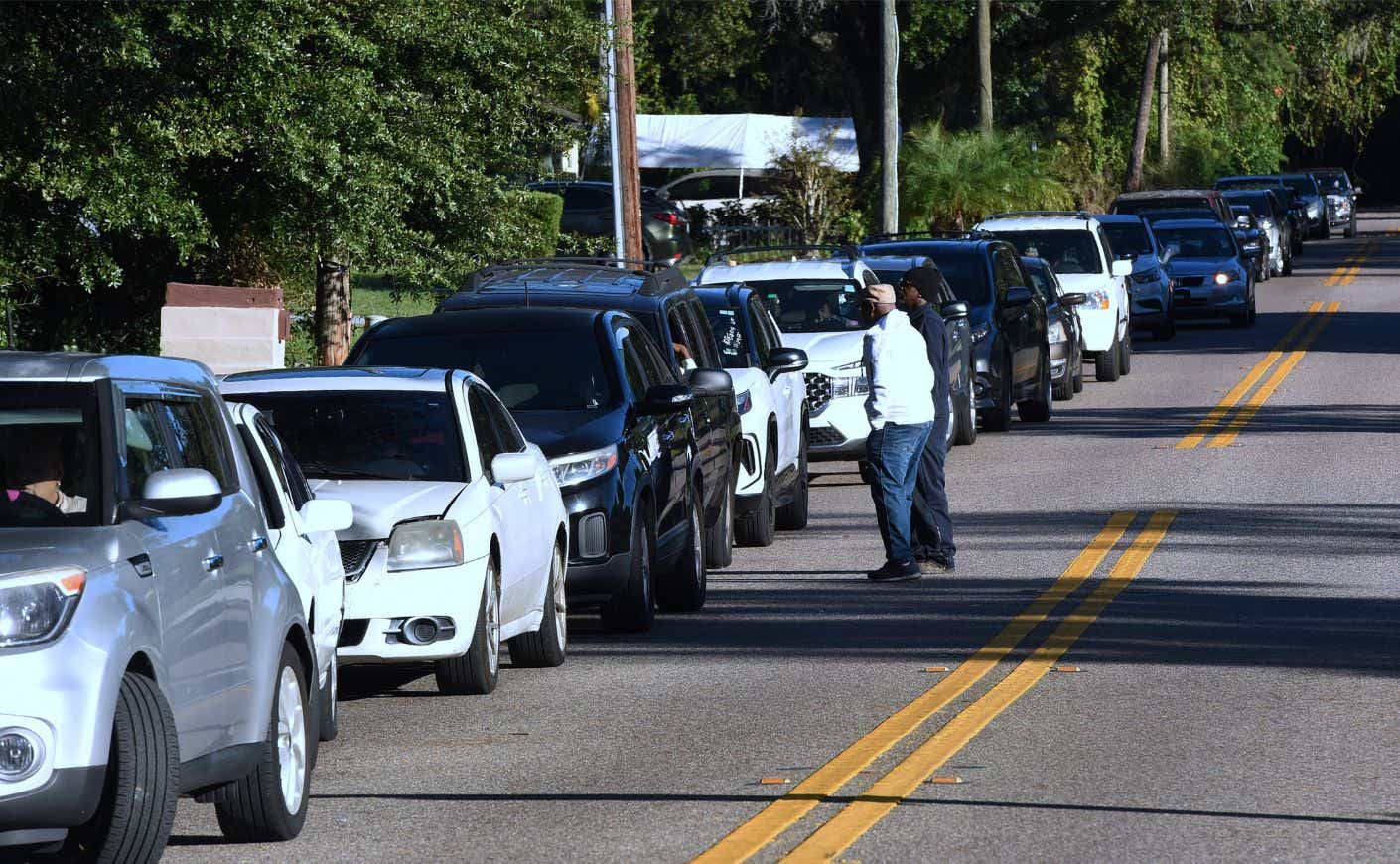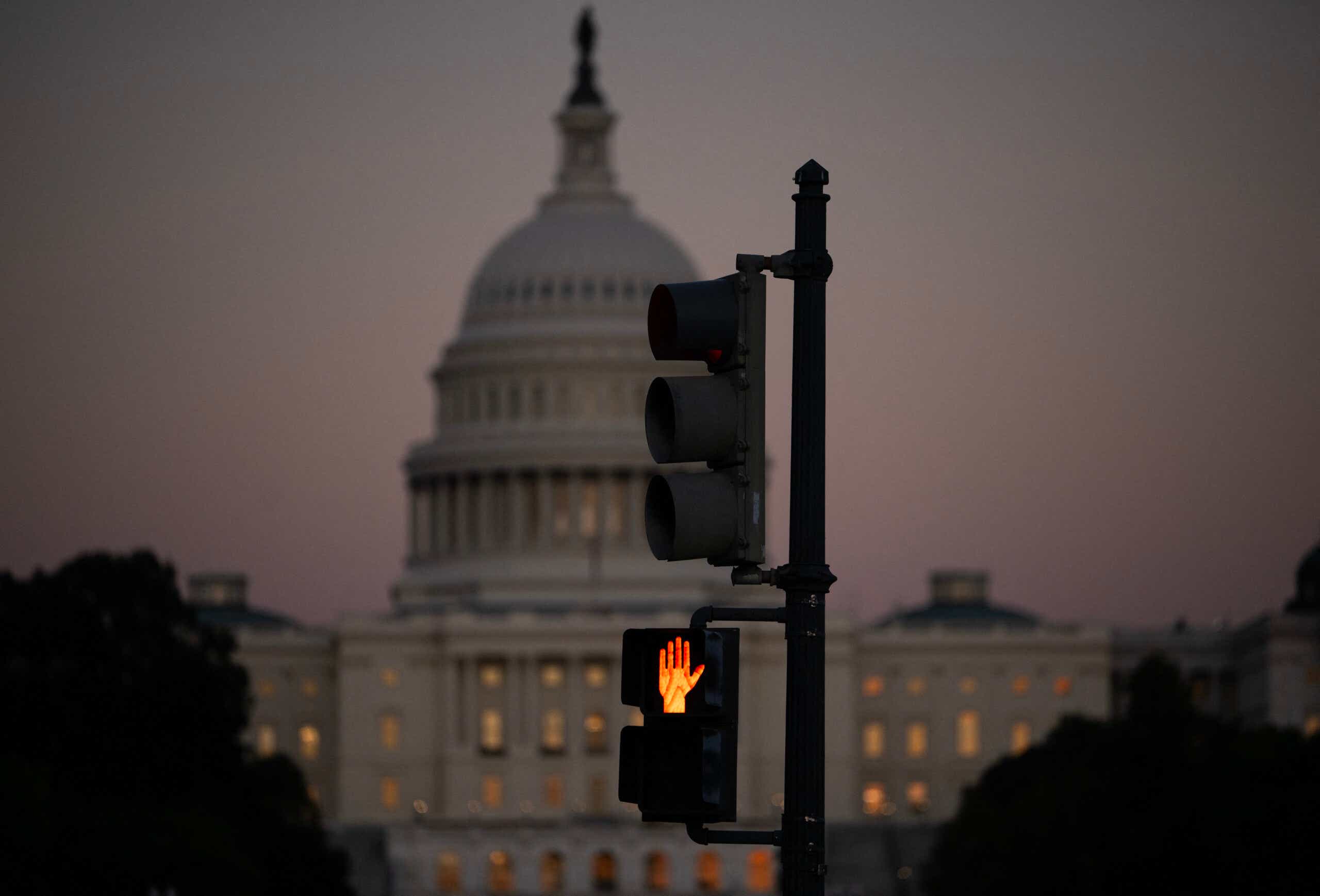For millions of Americans, the government shutdown isn’t just a headline — it’s a hardship. Federal employees are driving for DoorDash to make rent, parents are stretching dwindling food benefits, and TSA agents are showing up to work without pay.
As the longest shutdown in U.S. history drags on, the ripple effects are growing harder to ignore. The impact stretches beyond missed paychecks — it’s reshaping how Americans work, eat, and travel, with no clear end in sight. And even if the government reopens tomorrow, recovery will take time. As former Homeland Security procurement officer Soraya Correa explained in an interview with Raleigh’s local WRAL News, agencies “won’t have funds flowing on day one” — they’ll need to decide “what needs to be funded first.”
To put the damage this historically long standoff in Washington can cause into perspective, we're examining some of the most significant ways it's affecting everyday life across the country.
Federal workers go weeks without pay
Roughly 1.4 million federal employees are caught in limbo — about 670,000 furloughed and another 730,000 working without pay, according to the Bipartisan Policy Center.
Many furloughed workers have turned to side hustles to get by, taking gigs like DoorDash and Amazon delivery. “I have savings, obviously, but without any additional paychecks coming in, we got to kind of make it work somehow,” a furloughed employee who asked not to be identified told CBS.
For some, making ends meet means getting a little creative. IRS tax attorney Isaac Stein used his unexpected downtime to launch a hot dog stand in his Washington, D.C., neighborhood — though it’s yet to turn a profit. Others are attending job fairs, hoping to line up something — anything — to keep them afloat. Most declined to go on record for fear of losing their positions, but their stories paint a bleak picture of what life looks like without a paycheck in sight. As Elizabeth Baker of Montgomery County, who received a stop-work order from her employer at the start of the shutdown, told CNN: “We’re down to survival.”
The damage of missed paychecks is spreading far beyond federal offices. Food assistance groups say they’re seeing more federal and contract workers turning to pantries for help as the shutdown drags on. “We’re serving people who can’t afford to lose paychecks, which is what’s happening with a lot of government contract workers and federal workers, and they can’t afford to lose SNAP benefits,” Jilly Stephens, CEO of City Harvest, a New York–based food rescue organization, tells Katie Couric Media. “So we’re seeing a real crisis in New York City — and I would venture across the country as well.”
Food assistance runs thin
The Supplemental Nutrition Assistance Program (SNAP) — which helps feed about 42 million Americans — is only partially funded for November, despite the president’s threat to withhold federal funding until the shutdown ends. This means many households are receiving about half their usual benefits, according to The Guardian.
That shortfall has hit food banks and anti-hunger groups, which are reporting surging demand. Eric Cooper, president and CEO of the San Antonio Food Bank, told ABC News that the organization typically feeds 105,000 to 120,000 people per week but is now seeing close to 170,000.
Organizations are scrambling to raise money, but many are already stretched thin and can’t fill the gap left by federal aid. “We’re in disaster response mode,” says Stephens. “Usually it’s a natural disaster — this one’s man-made.”
“Every little bit helps,” she adds. “It’s not unusual for me to get a note with a $10 check saying, ‘It’s all I can afford, but I want to help.’ That’s an incredibly meaningful gift, because often for that person, it’s a stretch.”

In Chicago, the Greater Chicago Food Depository is already serving more people than it did at the height of the pandemic. “This could get really bad,” Jim Conwell, the group’s vice president of communications, told Reuters.
That gap could make America’s hunger problem even worse. The Trump administration has already cut funding for food banks and tightened SNAP work requirements — changes that could push even more people off the program.
For Stephens, it’s a reminder of how fragile most families’ situations really are. “It doesn’t take much for people to find themselves struggling — one disaster, one medical event, one missed paycheck. Suddenly, you’re in a very difficult situation,” she says.
Air travel is thrown into chaos
If you’re flying anytime soon, you might want to prepare for some serious delays. The federal shutdown is wreaking havoc on air travel, with staffing shortages at the FAA and TSA leading to long lines and flight disruptions across the country. In Houston, wait times at Hobby Airport are topping an hour as fewer screening lanes stay open — and at Bush Intercontinental, lines have stretched past three hours, with fewer TSA checkpoints.
Flight delays and cancellations are piling up as the shutdown hits airports from Atlanta to Chicago. In other words, don’t push your luck. “Now is absolutely not the time to test the ‘airport theory’ by showing up 15 minutes before your flight,” Melanie Fish, a travel expert with Expedia, told The Washington Post. “Give yourself plenty of time — at least two hours for domestic flights and three for international.”
Transportation Secretary Sean Duffy has warned that parts of U.S. airspace could even temporarily close if more air traffic controllers stop showing up for work. The Federal Aviation Administration announced Wednesday that 10 percent of air traffic at 40 U.S. airports will be cut starting Friday if the shutdown continues. Controllers received a partial paycheck early in the shutdown, missed one entirely last week, and will get another paystub this Thursday — for $0.
Morale among TSA workers has plummeted, with some struggling to cover rent or afford basic necessities. Paul Eger, a TSA agent at Duluth International Airport, says that financial strain is taking a toll on workers’ focus.
“When you’re sitting at an X-ray machine, you should be concentrating on what’s going through the scanner,” he told MPR News. “But it's harder to do that when you're thinking about how am I going to pay the bills? How am I going to buy gas? How am I going to get food for my family or childcare?"
Across the country, millions are feeling that same strain — doing their best to get by while the deadlock in D.C. drags on. As Stephens of City Harvest puts it, “It’s incumbent on all of us to understand that and to have empathy for our neighbors, and to do whatever we can to help them.”
Sara Levine contributed reporting for this story.









